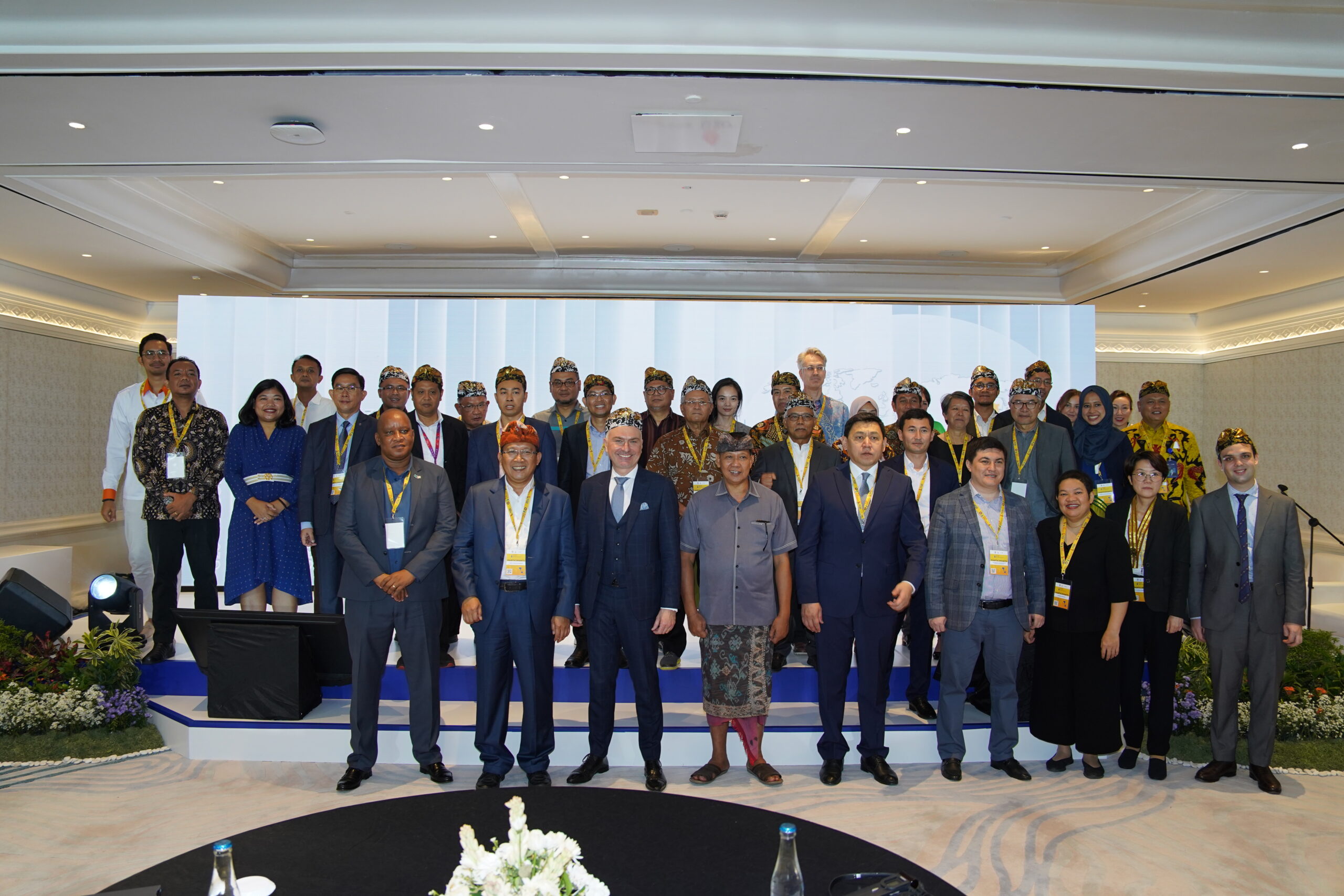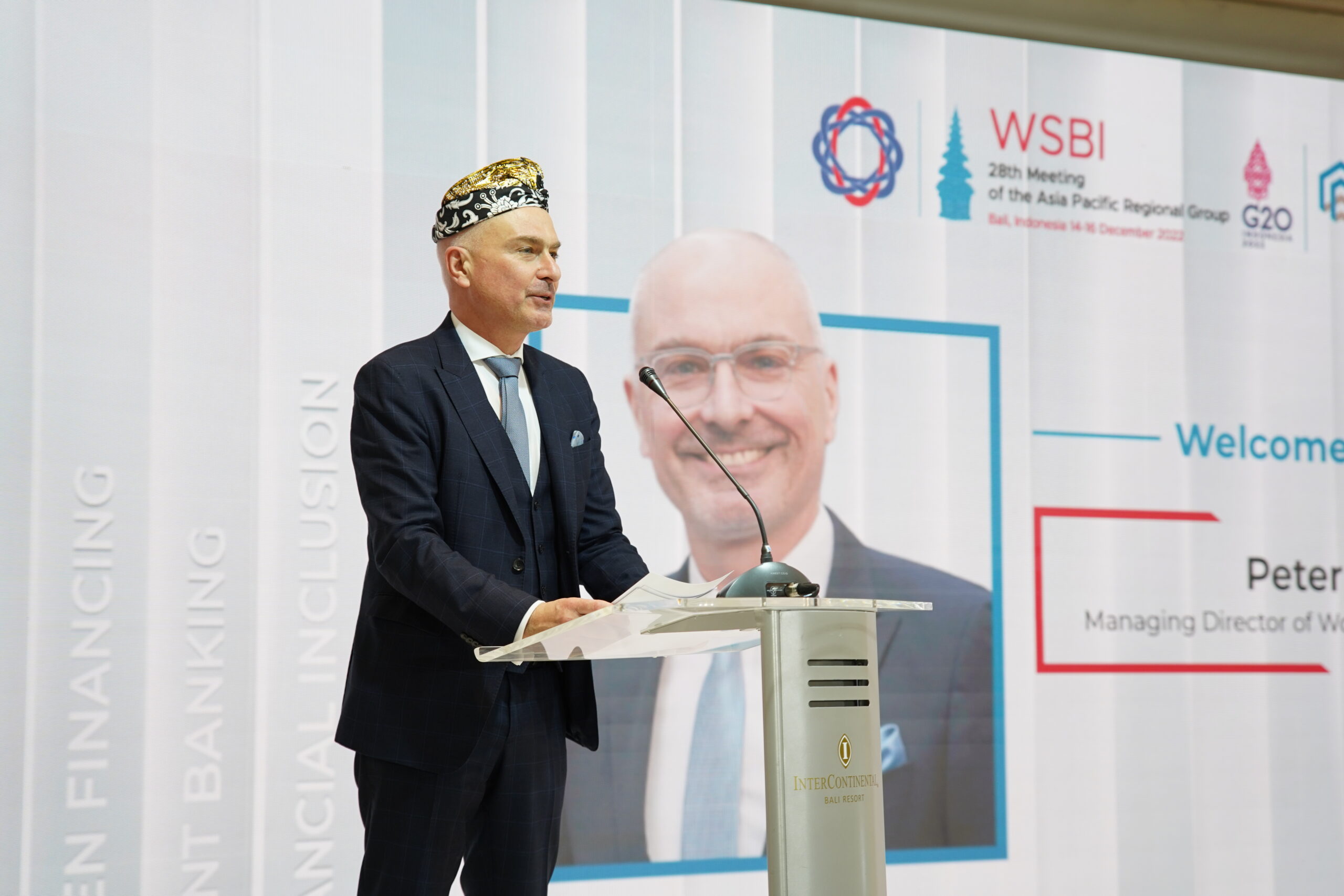ESBG provides input on technical negotiations of the Artificial Intelligence Act
In Q4 of 2022, ESBG staff was invited to three stakeholder info sessions on the technical negotiations on the Artificial Intelligence Act, organized by the offices of MEP Voss (EPP, LIBE Shadow/JURI Opinion), MEP Clune (EPP, LIBE Shadow), and MEP Maydell (EPP, ITRE Opinion). During these info sessions, stakeholders were updated about the articles discussed during the technical meetings that took place in the Parliament and invited to provide concrete input on concrete issues.
The definition of AI remains a highly debated issue. According to ESBG members, the proposed definition is currently too broad. ESBG members argued for a narrow scope, since a scope that is too broad could potentially include more traditional software systems that should not fall under the scope of the proposal The definition of AI needs to take into account the different levels of autonomy and explainability of the system, as well as the level of control and human participation. Furthermore, it must contain the ability to learn and reason as central element.
Stakeholders were also asked for concrete examples of overlap with other pieces of legislation, also of sector-specific legislation. ESBG pointed out a number of articles where overlap with other legislation, notably the GDPR exists. There has also been discussion on the high-risk classification, extraterritorial applications, cooperation mechanisms, and access to data. Therefore, ESBG provided input on those matters as well.
related
Joint statement calling for clear distinction between AI and credit scoring in AI Act
On 11 January 2024, a joint industry statement was issued by ESBG, together with the Association of Consumer Credit Information Suppliers (ACCIS)
ESBG stresses the need for consistency and clarity in its Response to the SFDR Review Consultation
On 14 December, ESBG submitted its feedback on the Sustainable Finance Disclosure
ESBG Advocates Clarity and Harmony in EU Taxonomy Implementation
ESBG remains committed to ensuring a clear and effective regulatory framework.
ESBG advocates for harmonized reporting as part of the Common Data Dictionary
On 29 November, ESBG responded to the European Commission’s invitation for feedback on the Common Data Dictionary (CDD), a significant
ESBG’s position paper on the potential inclusion of SMEs in the Taxonomy
In November 2023, ESBG published a position paper on the potential inclusion of
ESBG response to the EBA consultation on draft templates and template guidance for collecting climate related data from EU banks.
ESBG welcomes the opportunity to answer to the EBA’s consultation on the draft templates for collecting
ESBG outlines vision on enhanced risk data practices as part of ECB consultation
On 6 October, ESBG submitted its response to European Central Bank consultation on enhancing Risk Data Aggregation and Risk Reporting (RDARR)
ESBG advocates for further clarity in IFRS 9 Impairment requirements
On 29 September, ESBG submitted its response to the International Accounting Standards Board’s (IASB) Request for Information on
ESBG responds to the ECB consultation on its Guide to Internal Models
On 15 September 2023, ESBG responded to the European Central Bank (ECB) public consultation on its revised Guide to internal models
ESBG’s new position paper on the digital euro highlights pivotal open issues to be addressed by the legislators
Digital Finance | Following the publication of a proposal for a Regulation on the establishment of the digital euro on 28 June 2023, the European Commission
Crypto-asset Activities: WSBI-ESBG calls for a more consistent regulatory approach
The Financial Stability Board (FSB) which is an international body that monitors and makes recommendations about the global financial system published a proposed framework for International Regulation of Crypto-asset Activities on 11 October 2022. The said framework sets out a) the key issues and challenges in developing a comprehensive and consistent regulatory approach that captures all types of crypto-asset activities that could rise to financial stability risks; b) policy initiatives at the jurisdictional and international levels; c) the FSB’s proposed approach for establishing a comprehensive framework.
The FSB reports that crypto-assets and markets must be subject to effective regulation and oversight commensurate with the risks they pose. Crypto-asset markets are fast evolving and could reach a point where they represent a threat to global financial stability due to their scale, structural vulnerabilities and increasing interconnectedness with the traditional financial system.
WSBI-ESBG, for its part, welcomed the initiative of addressing the above-mentioned crucial issues and replied to the call for feedback on this consultative document on a proposed framework for International Regulation of Crypto-asset Activities, in particular calling for a more measured regulatory approach between the several players (i.e.; financial institutions, issuers, and providers of crypto assets) and for consistency between regulations and requirements applicable to traditional finance and crypto-based finance.
Finally, members underlined the importance of having a clear and dynamic regulatory approach to avoid confusion on the categorization of crypto-assets (i.e.; stablecoins, global stablecoins, digital assets), and the need for a higher consistency between local and international regulations.
related
Joint statement calling for clear distinction between AI and credit scoring in AI Act
On 11 January 2024, a joint industry statement was issued by ESBG, together with the Association of Consumer Credit Information Suppliers (ACCIS)
ESBG stresses the need for consistency and clarity in its Response to the SFDR Review Consultation
On 14 December, ESBG submitted its feedback on the Sustainable Finance Disclosure
ESBG Advocates Clarity and Harmony in EU Taxonomy Implementation
ESBG remains committed to ensuring a clear and effective regulatory framework.
ESBG advocates for harmonized reporting as part of the Common Data Dictionary
On 29 November, ESBG responded to the European Commission’s invitation for feedback on the Common Data Dictionary (CDD), a significant
ESBG’s position paper on the potential inclusion of SMEs in the Taxonomy
In November 2023, ESBG published a position paper on the potential inclusion of
ESBG response to the EBA consultation on draft templates and template guidance for collecting climate related data from EU banks.
ESBG welcomes the opportunity to answer to the EBA’s consultation on the draft templates for collecting
ESBG outlines vision on enhanced risk data practices as part of ECB consultation
On 6 October, ESBG submitted its response to European Central Bank consultation on enhancing Risk Data Aggregation and Risk Reporting (RDARR)
ESBG advocates for further clarity in IFRS 9 Impairment requirements
On 29 September, ESBG submitted its response to the International Accounting Standards Board’s (IASB) Request for Information on
ESBG responds to the ECB consultation on its Guide to Internal Models
On 15 September 2023, ESBG responded to the European Central Bank (ECB) public consultation on its revised Guide to internal models
ESBG’s new position paper on the digital euro highlights pivotal open issues to be addressed by the legislators
Digital Finance | Following the publication of a proposal for a Regulation on the establishment of the digital euro on 28 June 2023, the European Commission
WSBI-ESGB members call for aligned approach between regulatory bodies on Cyber incident reporting
On 17 October 2022, the Financial Stability Board (FSB) published a consultative document on Achieving Greater Convergence in Cyber Incident Reporting (CIR). In parallel, the FSB invited feedback on this document. Back in 2021, the FSB already published a report on CIR. The report set out three ways the FSB would take work forward to achieve greater convergence in cyber incident reporting: developing best practices, creating common terminologies for CIR, and identifying common types of information to be shared across jurisdictions and sectors.
To inform on its work, the FSB conducted a survey amongst FSB members to identify the most common reporting objectives and types of reporting performed; understanding the practical issues financial authorities and financial institutions have in collecting or using incident information; identifying the information items authorities collect to meet the common reporting objectives, including a review of existing incident reporting templates; and exploring the mechanisms for financial authorities to share incident information across borders and sectors.
Drawing on the survey findings, the FSB has set out recommendations to address impediments to achieving greater convergence in CIR with a view to promote better practices. This work also helped to inform refinements to the Cyber Lexicon, which resulted in the addition of four terms and revision of three definitions. The FSB also reviewed financial authorities’ incident reporting templates and identified commonalities in the information collected. Leveraging on this work, the FSB presented a concept for a format for incident reporting exchange (FIRE) to promote convergence, address operational challenges arising from reporting to multiple authorities and foster better communication.
In the face of the above mentioned initiative, WSBI-ESBG replied to the call for feedback on this consultative document on cyber incident reporting, in particular calling for a harmonised reporting approach between different regulatory bodies, processes, and data requests. In terms of promoting greater convergence in CIR, financial authorities could offer tools and platforms that minimize operational issues for reporting of incidents.
Finally, members underlined the importance of having clear definitions to avoid confusion and to differentiate between the terms ‘cyber incident’ and the subcategory thereof of ‘cybersecurity incident’.
related
Joint statement calling for clear distinction between AI and credit scoring in AI Act
On 11 January 2024, a joint industry statement was issued by ESBG, together with the Association of Consumer Credit Information Suppliers (ACCIS)
ESBG stresses the need for consistency and clarity in its Response to the SFDR Review Consultation
On 14 December, ESBG submitted its feedback on the Sustainable Finance Disclosure
ESBG Advocates Clarity and Harmony in EU Taxonomy Implementation
ESBG remains committed to ensuring a clear and effective regulatory framework.
ESBG advocates for harmonized reporting as part of the Common Data Dictionary
On 29 November, ESBG responded to the European Commission’s invitation for feedback on the Common Data Dictionary (CDD), a significant
ESBG’s position paper on the potential inclusion of SMEs in the Taxonomy
In November 2023, ESBG published a position paper on the potential inclusion of
ESBG response to the EBA consultation on draft templates and template guidance for collecting climate related data from EU banks.
ESBG welcomes the opportunity to answer to the EBA’s consultation on the draft templates for collecting
ESBG outlines vision on enhanced risk data practices as part of ECB consultation
On 6 October, ESBG submitted its response to European Central Bank consultation on enhancing Risk Data Aggregation and Risk Reporting (RDARR)
ESBG advocates for further clarity in IFRS 9 Impairment requirements
On 29 September, ESBG submitted its response to the International Accounting Standards Board’s (IASB) Request for Information on
ESBG responds to the ECB consultation on its Guide to Internal Models
On 15 September 2023, ESBG responded to the European Central Bank (ECB) public consultation on its revised Guide to internal models
ESBG’s new position paper on the digital euro highlights pivotal open issues to be addressed by the legislators
Digital Finance | Following the publication of a proposal for a Regulation on the establishment of the digital euro on 28 June 2023, the European Commission
WSBI and BTN Collaboration Encourages Global Financial Digitalization and Inclusion
Brussels, 16 December 2022 - World Saving and Retail Banking Institute (WSBI), incollaboration with PT Bank Tabungan Negara (Persero) Tbk (BTN), held the 28th meeting of the WSBI Asia Pacific Regional Meeting. The meeting was held under the theme "Sustainable and Resilient - Savings and Retail Banks in the Post-Pandemic Era". The event was a follow-up to the results of the G20 summit in Denpasar, Bali.
WSBI Managing Director Peter Simon delivered the Paris Declaration to representatives of the Indonesian G20 Presidency. In his speech, Mr Simon insisted on the need for shared solutions to common problems that go beyond geopolitical division. To this end, he reiterated the main points of the Paris Declaration, which calls for harmonizing green taxonomies among jurisdictions following science-based, pragmatic principles. In line with the theme, there were a number of discussion topics at the Regional Meeting, which was held on December 15-16, 2022, in Bali, Indonesia. Among them are digitalization and financial inclusion, sustainability, green finance, innovation, fintech, and payments. These topics were elaborated from different perspectives: business side and regulatory.
WSBI delegation was led by WSBI – ESBG Managing Director, Peter Simon and the meeting saw the participation of many members such as the President Director of
Bank BTN, Haru Koesmahargyo, Shantan Yoosiri Senior Executive Vice President of Government Saving Bank Thailand, and a number of delegates from various countries and banks such as Imagin, CaixaBank, the Sparkassestiftung for International Cooperation, Germany, the Saving Bank of Thailand, Cambodian Bank, Xalk Bank Uzbekistan, Bostwana Savings Bank, Bostwana, the European Union Delegation to ASEAN, the European Investment Bank, European Union. This very intense three-day event was a great chance to concretely discuss best practices and share strategies both from the perspective of regulators and the banking industry. Participants learnt and discussed practical solutions to improve the reliability of green finance product data. Tools and strategies were presented for very advanced banks as well as for institutions catering for the less well-off. The European Investment Bank and the Indonesian Ministry for Housing and Public Works gave a bunch of concrete projects that are being launched in the region where socially responsible banks can play a crucial role while developing their green finance portfolio.
Media coverage in other languages
Article from : Liputan 6 (The 6 Report), Indonesian flagship television news program broadcasts on SCTV
Article from: Suara.com, a Indonesian news portal that presents informations from political, business, legal.
Article from: Media Indonesia is a national newspaper published since January 19, 1970
related
Joint Industry letter on the importance of advice and preserving the commission-based model
ESBG welcomed the intentions of the EC and DG FISMS to assess how the retail investor protection framework may be enhanced through this specific methodology
Value for money approach: ESBG position
ESBG welcomed the intentions of the EC and DG FISMS to assess how the retail investor protection framework may be enhanced through this specific methodology
WSBI-ESBG shares its position on the draft FATF Guidance on the transparency and beneficial ownership of legal persons
The FATF Recommendations set out global AML/CFT measures and should be implemented by countries in the best way
ESBG’s response to FATF draft amendments on the transparency and beneficial ownership of legal arrangements
Following a white paper on the revision of the rules on the transparency and beneficial ownership
State Aid rules for banks in difficulty
The European Savings and Retail Banking Group (ESBG) welcomes the initiative of the European Commission to launch a targeted consultation aiming at reviewing the State Aid rules for banks in difficulty.
International Sustainability Standards Board consultation on Sustainability Disclosures
The International Sustainability Standards Board (ISSB) has been established at COP26 with the purpose of developing a comprehensive global baseline of sustainability disclosures for the capital markets. The purpose of the consultation is to develop a comprehensive global baseline of sustainability disclosures designed to meet the information needs of investors in assessing enterprise value.
Covid 19 WSBI Statement
We welcome both the decision to update the Supervisory Review and Evaluation Process (SREP) Guidelines and the overarching objectives to increase convergence of practices across the EU and to align with other relevant EBA Guidelines.
IFRS Foundation: Consultation paper on sustainability reporting
WSBI-ESBG welcomes the opportunity to comment on the IFRS Foundation’s Consultation Paper on Sustainability Reporting.
IASB Discussion Paper 2020 2021 Business Combinations—disclosures, goodwill and impairment
WSBI-ESBG support IASB preliminary views to develop proposals to remove restriction that prohibits firms from including some cash flows in estimating value in use.
WSBI statement on Covid-19
The financial industry faces an unprecedented challenge that may last for quite some time due to the coronavirus pandemic, states a letter for policymakers worldwide from savings and retail banking association WSBI.

























































